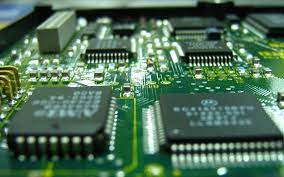The semiconductor game gets political and becomes a team sport. At least on one side of the field. The four-party alliance wanted by the US aims to contain China. On which side will the ASEAN countries play?
Semiconductors are essential to the life and growth of digital society. A secure supply of these products is now a priority - and a headache - for governments around the world. There is still a global crisis in this industry's supply chains - a crisis that is part of a broader context of 'globalisation in turmoil' - which makes it difficult for other sectors to procure the necessary components. The problem is made even more complex by its political fallout. Indeed, the United States and China compete in the data economy and the development of new applications of artificial intelligence. This leads the two giants to demand a huge amount of chips and try to limit their rival's grip on the market. In the last months, Washington has taken the first steps towards the formation of a four-way semiconductor alliance with its historical partners on the China Sea - Japan, South Korea and Taiwan - in order to be able to develop 'democratic' supply chains, from the factory to consumers, without necessarily involving China. Beijing looks at the US initiative with concern, fearing being 'excluded' from the most important value chains in the globalised world.
The fragility and strategic importance of semiconductor supply chains have prompted governments to take action to secure their technological sovereignty. Many countries have taken steps to strengthen chip production in their own territory, in collaboration with the giants of the sector: just to mention two initiatives, Taiwanese TSMC is building a 12 billion production plant in Arizona with the support of the state and federal governments; Intel and the Italian government are closing negotiations for the creation of a production site in the Veneto region. Nevertheless, the semiconductor value chain cannot be enclosed within the borders of a single country, nor can it be so easily reorganised. Each stage of the production chain requires strong specialisation of entire industrial districts and high-tech equipment. At the moment, it does not seem possible to make chips without the involvement of East Asian countries. Therefore, governments are also trying to strengthen their international partnerships to secure supplies and overcome certain bottlenecks in production. Each of the Chip4 economies is particularly strong in one of the links of the chain and the alliance would be able to organise supplies between partners without relying heavily on external players. There are not only economic considerations behind Washington's initiative, however. The four countries are like-minded democracies that watch with some attention the growing Chinese influence not only in the region but also in the digital economy and some of its cutting-edge sectors. In a scenario of growing tensions with Beijing, the Chip4 countries might have an interest in not being dependent on the Chinese semiconductor industry.
Yet, it is not so easy to marginalise China from the value chain, especially for South Korea. Indeed, 60% of Seoul's chip exports go to its neighbour. Participating in an alliance that could be perceived as anti-Chinese would expose Korean manufacturers to trade retaliation, hence exclusion from a sizeable market. At the same time, Beijing might not be able to give up semiconductors made in Korea, as certain advanced technologies are only developed there or in the United States - and Washington has imposed sanctions and export control measures against Chinese companies as late as 2020. In other words, trying to exclude a country from the supply chain and, more generally, weaponising the sector for political objectives will always entail heavy costs and could make the semiconductor crisis even worse. Technological sovereignty could turn out to be an unachievable and, indeed, costly goal - there are not only duties imposed by governments, but also subsidies to attract private companies to their territory - as the disruption of the supply of even a minor component may paralyse the entire sector worldwide. The US initiative could also involve some ASEAN countries at some point. The semiconductor industry is developing fast in the region and some countries already play a key role - especially Malaysia and Singapore. In some cases, these are partners that Washington also recognises politically. Sooner or later, the US may try to involve them in initiatives like Chip4. All major ASEAN economies have an ambivalent relationship with China: on the one hand, a key economic partner; on the other, an increasingly assertive neighbour. Therefore, the same dilemma faced by Seoul today could arise for their governments. In any case, it must be remembered that the global semiconductor industry cannot prosper without a liberalised trading system shielded, as much as possible, from political tensions, due to the dense network of interdependencies between countries. The escalation of tensions between Washington and Beijing in this field would, in any case, have profoundly negative effects on the sector and would make its crisis even more complicated.






